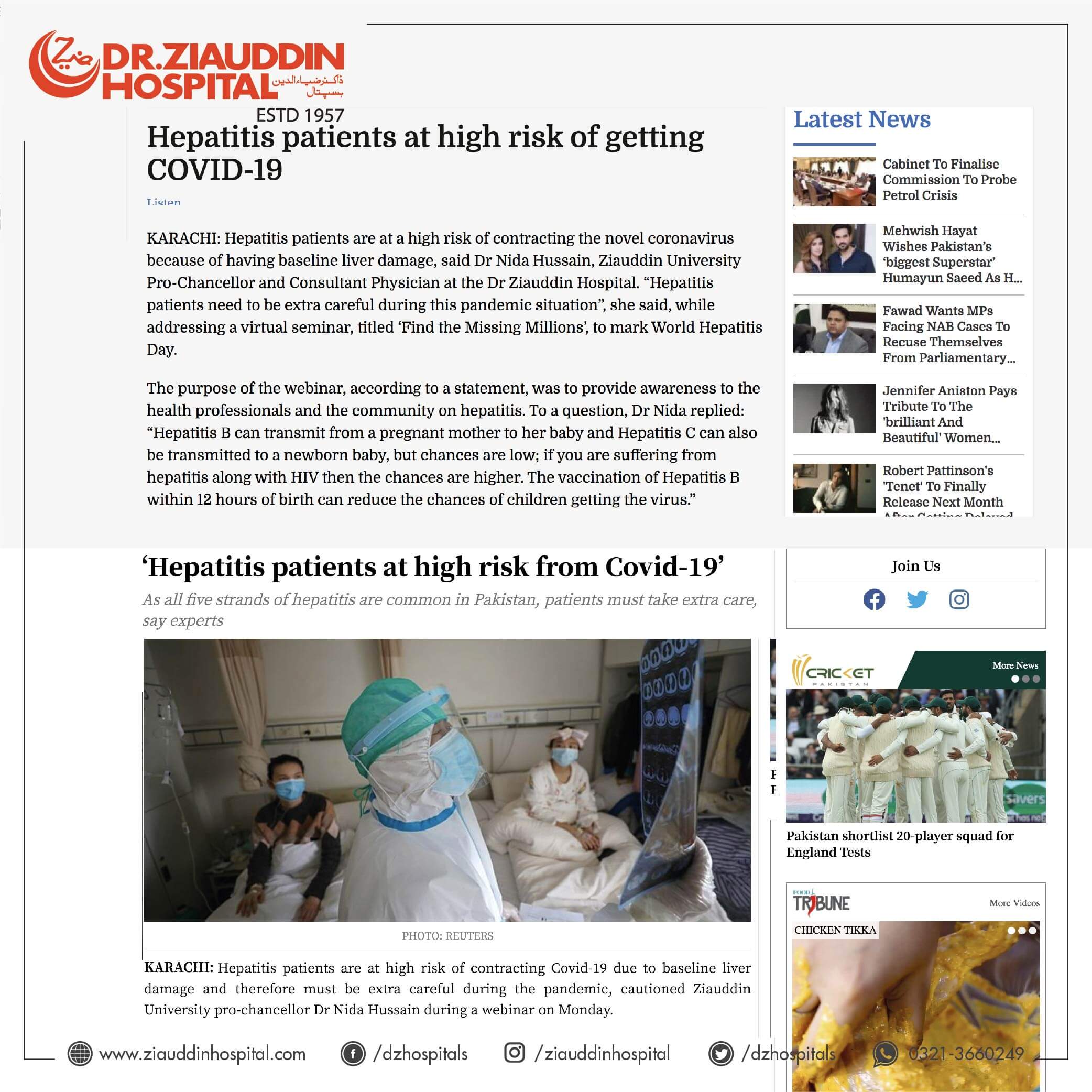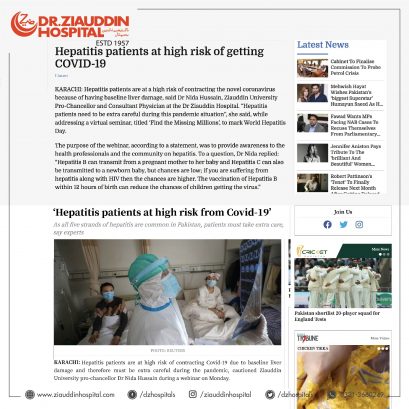Hepatitis patients at high risk from Covid-19
As all five strands of hepatitis are common in Pakistan, patients must take extra care, say experts
Hepatitis patients are at a high risk of contracting the novel coronavirus because of having baseline liver damage, said Dr Nida Hussain, Ziauddin University Pro-Chancellor and Consultant Physician at the Dr Ziauddin Hospital. “Hepatitis patients need to be extra careful during this pandemic situation”, she said, while addressing a virtual seminar, titled ‘Find the Missing Millions’, to mark World Hepatitis Day.
The purpose of the webinar, according to a statement, was to provide awareness to the health professionals and the community on hepatitis. To a question, Dr Nida replied: “Hepatitis B can transmit from a pregnant mother to her baby and Hepatitis C can also be transmitted to a newborn baby, but chances are low; if you are suffering from hepatitis along with HIV then the chances are higher. The vaccination of Hepatitis B within 12 hours of birth can reduce the chances of children getting the virus.”
A gastroenterologist and the president of the Pakistan Society for the Study of Liver Diseases, Dr Zaigham Abbas, said all five major types of hepatitis were unfortunately very common in Pakistan. “The causes may be viral, toxins, alcohol, drugs, and some metabolic effects,” he said. “Patients having these viruses present to us with clinical symptoms like jaundice, nausea, vomiting and these are the self-limiting viruses. Hepatitis B and C can affect the body and may cause chronic inflammation.
Both can transmit through blood, unprotected sex, from mother to child easily. Not having proper cleanliness and sterilisation are main causes of their spread,” Dr Abbas added. Experts of their fields attended the webinar, including Dr S M Qamar ul Arfin and Dr Sohail Hussain. Stressing the need for preventive measures to control this epidemic in Pakistan, speakers said there was a need for case finding and proper management of patients. They said the majority of people endure this infection in the health care settings without being aware of it. They said the disease was called a silent killer because many patients remained undiagnosed and untreated for many years before developing complications.


